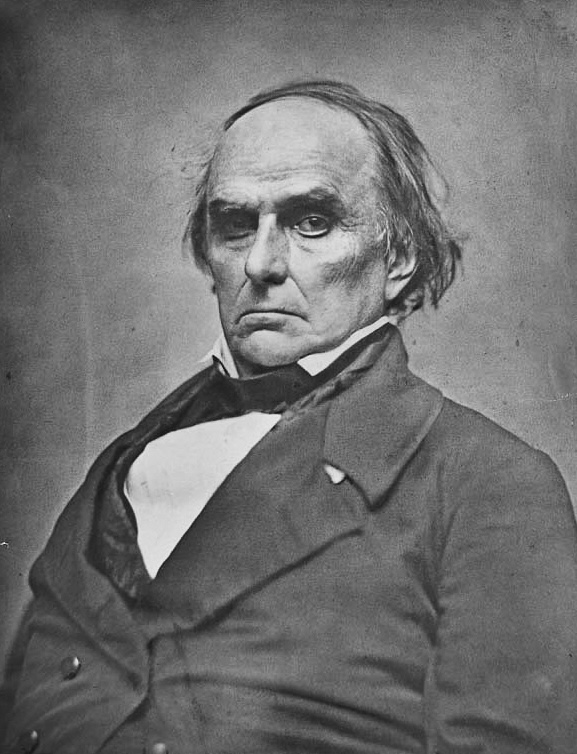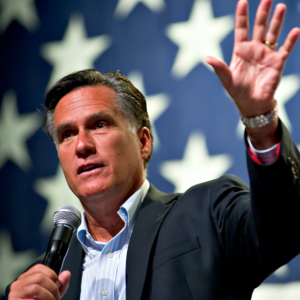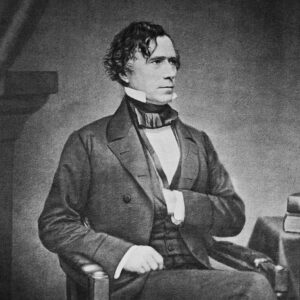It’s Presidents Day, a time for history buffs to renew their annual complaints about President George Washington losing his holiday to the entire collection of White House residents, the good and the bad.
“The esteemed readers of NH Journal should be reminded that there is no such holiday as ‘Presidents Day,’” said New England College Associate Professor of Politics Dr. Nathan Shrader. “The actual holiday recognized on the third Monday of each February by the federal government is actually known as ‘Washington’s Birthday.’ As Henry Lee accurately wrote, Washington was ‘First in war, first in peace, and first in the hearts of his countrymen.’”
J. Mark Powell, author of the popular “Holy Cow! History” series, agrees.
“It’s a shame the truly great presidents—the Washingtons, Roosevelts, and Reagans—get the same recognition as the less-than-ideal presidents—the Pierces, Buchanans, and Hardings. For the sake of scheduling expediency, we have lumped together presidential excellence with mediocrity.”
And nobody embraced mediocrity more than New Hampshire native son Franklin Pierce, the 14th president to serve but listed among the bottom four in multiple rankings by historians.
Pierce got his lousy reputation as president the old-fashioned way: He earned it. He was a pro-slavery Northerner whose endorsement of the Kansas-Nebraska Act killed the Missouri Compromise and made the Civil War all but inevitable. And while it’s believed personal tragedy played a role in his poor judgment (along with his heavy drinking), Pierce was so bad at his job that he did something even Joe Biden couldn’t accomplish: He got thrown off the ticket by his fellow Democrats, who refused to renominate him for a second term.
(Then again, this may be a cautionary tale for Democrats: Pierce was replaced by James Buchanan, who was even worse.)
Pierce spent the Civil War publicly criticizing President Abraham Lincoln, privately writing to his friend and president of the Confederacy Jefferson Davis, and died of cirrhosis of the liver in 1869. All in all, a terrible representative of New Hampshire by the only Granite Stater to reach the White House. And an unfair one, political analysts and historians say, given the quality of political leaders produced by the state.

Daniel Webster. (2024, February 18). In Wikipedia.
So, which Granite Stater should have made it to 1600 Pennsylvania Avenue?
The most commonly-mentioned name is Daniel Webster, one of the most important figures in 19th-century American politics (good!) but who spent most of his time in public office representing Massachusetts (bad!).
Webster was known as a legislator and diplomat, but he did run for president once — sort of. In 1836, in an attempt to block Andrew Jackson’s handpicked successor, Martin Van Buren, the Whig Party ran four candidates in hopes of throwing the election into the House of Representatives. Webster ran as a single-state candidate to deny Van Buren the electoral votes of Massachusetts. He won the state, but Van Buren narrowly won the White House.
The other frequently-mentioned Granite Stater who would make a good president also has some residency issues: Mitt Romney.
“If Mitt counts — and he should — Mitt looked good when he ran, and he looks even better today,” said veteran New Hampshire political strategist Tom Rath. “His intellect and integrity are both unique and beyond question. He also really loves New Hampshire. He won the FITN primary in 2012, but lost the general to President Barack Obama.
“That Romney vs. Obama contest looks pretty good when compared to the more recent choices,” Rath added.
GOP consultant Dave Carney put Levi Woodbury from Francestown, N.H., on the list, and a glance at the 19th-century pol’s resume explains why. Woodbury is one of only three people in U.S. history to serve as a governor and in all three branches of the federal government.
Woodbury served in the New Hampshire state legislature, served a term as governor, was elected to the U.S. Senate, was tapped by President Andrew Jackson to be his secretary of the navy in 1828, and eventually landed on the U.S. Supreme Court. He was a popular choice for president among Democrats in 1848, though the nomination went to Lewis Cass (who lost to Zachary Taylor).
“He was well respected and good at working with political people,” Carney said.” And Woodbury may have avoided the Civil War.”
It’s an interesting argument. Woodbury was an opponent of the institution of slavery who also supported states’ rights and believed the Constitution should be upheld, even when the outcome was unpleasant. Could a Woodbury presidency have navigated the U.S. toward a resolution of the slavery question without war?
Another more contemporary choice is Gov. Steve Merrill.
“Former Gov. Merrill would have been a fantastic president,” said GOP communications professional and Union-Leader columnist Patrick Hynes. “Brilliant, charismatic, and relentlessly on message, the original architect of ‘The New Hampshire Advantage’ was a leader ahead of his time who would have thrived in the social media world of today.”
Shrader said the two U.S. senators currently representing New Hampshire could do the job.
 “United States Sens. Jeanne Shaheen and Maggie Hassan are serious, thoughtful, articulate, and reasonable public servants who could step into the role of president of the United States and, in my view, excel at the position. Shaheen and Hassan are accomplished former governors and now represent the state effectively in the upper chamber. The country desperately needs level-headed leaders like them at the helm.”
“United States Sens. Jeanne Shaheen and Maggie Hassan are serious, thoughtful, articulate, and reasonable public servants who could step into the role of president of the United States and, in my view, excel at the position. Shaheen and Hassan are accomplished former governors and now represent the state effectively in the upper chamber. The country desperately needs level-headed leaders like them at the helm.”
Charlie Arlinghaus, commissioner at New Hampshire Department of Administrative Services and former CEO of the Josiah Bartlett Center, nominated two Granite Staters, one from history and one who’s still politically active today.
“Passaconaway was a 17th-century sachem of the Pennacook people. A legendarily tall man with charisma enough to be said to have the power to summon thunderstorms and perhaps make water burn,” Arlinghaus said. “He presided over the greatest challenge in the history of his culture and nation: the arrival of the settlers, the decimation of his fellows by unknown plagues, and an ongoing hostile tension between his people and the new ones.
“Passaconaway earned the respect of the new powers from Europe while holding onto authority over his own people. He pushed back when it made sense, and he compromised when necessary. And he ended his own tenure with a legendary farewell speech. His leadership, independent judgment, and willingness to step down rather than be forced out would all serve a man well in an executive role,” Arlinghaus said.
His contemporary choice: Former U.S. Sen. John E. Sununu.

John E. Sununu
“When John McCain ran for president, he said, ‘The greatest tragedy of John E. Sununu losing his reelection is that the entire Senate knew Sununu was the smartest man in the Senate. Now they all think they are.’ So, put in one vote for Sen. Sununu. It’s one thing to be the smartest guy in the room; it’s another for everyone else to know it. Having a smart president might be nice.”
The current head of the Josiah Barlett Center, not surprisingly, says Bartlett would be the best choice.
“Josiah Bartlett had the right temperament, skills, and thoughts on the role of government to be a very good president of the United States. He was a very popular Patriot leader, the second signer of the Declaration of Independence, important committee leader in the Continental Congress, militia captain, chief justice of the New Hampshire Supreme Court, governor of New Hampshire, and nominee for U.S. Senate. Had he been a decade or two younger, he surely would have been an important figure in someone’s presidential administration. Unfortunately, he died during the Washington administration, at only 65 years old, so we’ll never know what might’ve been.”
One Republican activist who declined to go on the record said the perfect New Hampshire ticket is obvious.
“Adam Sander and Sarah Silverman. Compared to the clown show we’ve got now, they would be George Washington and Abraham Lincoln.”
Then again, said Rath, the premise of the question is wrong.
“New Hampshire did have a president and a damn good and popular one: Josiah Edward ‘Jed’ Bartlett of the TV show “The West Wing.” “He had great ratings for a long run in prime time.”




